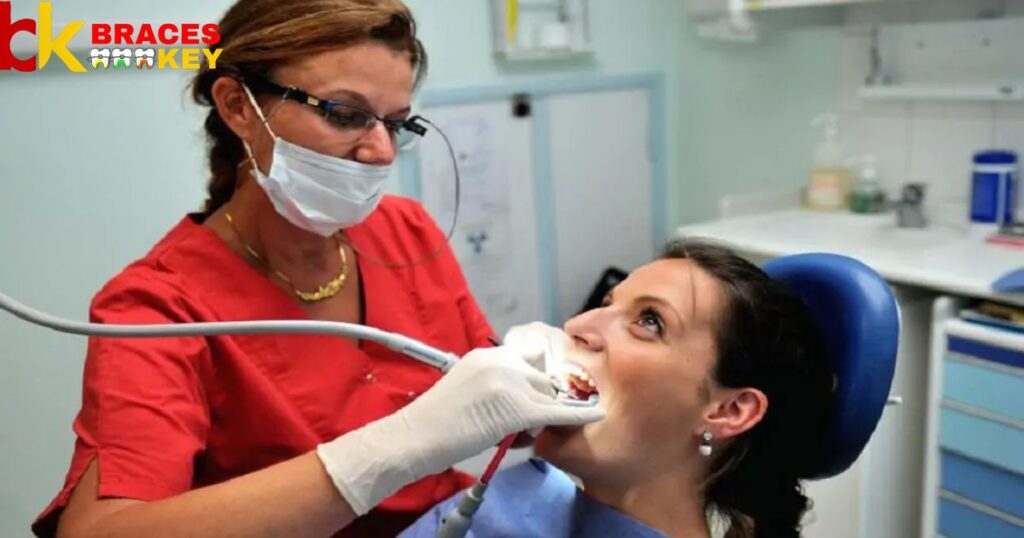If you lose insurance during braces, you may have to cover the costs yourself. Without insurance, orthodontic treatment can be expensive. You should explore other payment options or seek financial assistance if needed. Losing insurance during braces can impact your treatment affordability.
What happens if you lose insurance during braces? It’s a question that can create anxiety for many individuals on the journey to a straighter smile. The sudden loss of insurance coverage can leave you wondering about the impact on your orthodontic treatment and finances.
What Happens If You Lose Insurance During Braces? is a crucial question for those undergoing orthodontic treatment. It refers to the potential challenges and financial implications when insurance coverage for braces is unexpectedly lost. Understanding the options and alternatives can help individuals navigate this situation and ensure their treatment continues as planned.
Why Insurance Matters for Orthodontic Treatment
Insurance plays a significant role in orthodontic treatment, especially when it comes to the removal of a pistol brace. It matters because it can help ease the financial burden of expensive braces or other orthodontic procedures, including the removal of a pistol brace. With insurance, individuals can access the necessary care without straining their budgets, ensuring that their oral health and confidence benefit from a straighter smile, even after the removal of a pistol brace.
Furthermore, insurance matters because it provides a sense of security and peace of mind. Knowing that your orthodontic treatment costs are partially covered can relieve stress and encourage more people to seek treatment when needed. In essence, insurance contributes to improved overall well-being by making orthodontic care more accessible and affordable.
Common Reasons for Losing Insurance During Braces
There are various common reasons for losing insurance during braces. One of the primary factors is changes in employment. If you switch jobs or your employer alters the benefits package, your orthodontic coverage may be affected. Additionally, some insurance plans have coverage limits that can be exhausted before the treatment is completed, leading to loss of coverage.
Another common reason is the age limit on orthodontic coverage. Many insurance policies have age restrictions, and once a patient exceeds the specified age, the coverage ends. Lastly, sometimes insurance providers may discontinue certain plans or change their orthodontic coverage policies, leaving policyholders without the coverage they initially had.
These factors highlight the importance of staying informed about your insurance and exploring potential solutions if you find yourself losing coverage during braces.
Changes in Employment
- Changing jobs or experiencing alterations in your employment status can affect your insurance coverage for braces. When you switch employers, you may transition to a new insurance plan with different orthodontic benefits or, in some cases, no coverage at all.
Changes in Insurance Plans

- Insurance providers can modify their coverage policies, including orthodontic benefits. Sometimes, policyholders may receive notice of changes to their insurance plans that reduce or eliminate coverage for braces. Staying informed about policy updates is crucial to avoid unexpected loss of benefits.
Reaching the Maximum Benefit
- Most orthodontic insurance plans have a maximum lifetime benefit, which is the maximum amount the insurance will pay for orthodontic treatment. If you reach this limit before your braces are removed, you may lose insurance coverage for the remaining treatment costs. It’s essential to understand your plan’s maximum benefit and plan accordingly to avoid this situation.
The Financial Impact of Losing Insurance
Losing insurance can have a significant financial impact. Without insurance coverage, individuals may find themselves responsible for covering medical expenses entirely, which can be a substantial burden on their budgets.
This situation often leads to increased out-of-pocket costs for healthcare services, making it essential for people to carefully consider how to manage their finances without insurance.
Moreover, the financial impact of losing insurance can extend beyond immediate medical bills. It can affect long-term financial stability and planning. People may need to reevaluate their budgets, savings, and financial goals to accommodate the added costs.
Seeking alternative insurance options, negotiating bills, or exploring assistance programs can be crucial steps in mitigating the financial consequences of losing insurance.
Can A Tummy Tuck Be Covered By Insurance?
Cosmetic Procedure
A tummy tuck, also known as abdominoplasty, is primarily considered a cosmetic procedure. It is performed to enhance the appearance of the abdomen by removing excess fat and skin, and tightening abdominal muscles. Cosmetic procedures are typically not covered by insurance because they are elective and not considered medically necessary.
Medical Necessity
In some rare cases, a tummy tuck may be considered medically necessary. For example, if a person has experienced significant weight loss, leading to excess skin that causes physical discomfort, skin infections, or other health issues, insurance may cover the procedure to address these specific medical concerns. However, stringent criteria must be met to qualify for coverage.
Pre-Approval and Documentation

To potentially have a tummy tuck covered by insurance, you will likely need to go through a pre-approval process. This involves documenting your medical condition and providing evidence that the procedure is medically necessary. It’s crucial to work closely with your healthcare provider to gather the necessary documentation.
Limits and Restrictions
Even if your tummy tuck is deemed medically necessary and approved for insurance coverage, there may be limitations. Insurance may cover the medical portion of the procedure, such as addressing hernias or skin infections, while the cosmetic aspects of the surgery remain the patient’s responsibility.
Cosmetic Additions
If you want to include cosmetic enhancements during a medically necessary tummy tuck, like liposuction or additional skin removal, these enhancements are typically not covered and must be paid for separately.
Strategies to Prepare for Insurance Changes
Preparing for insurance changes is vital to maintain financial stability. Strategies to get ready for these shifts include reviewing your current policy to understand coverage, anticipating potential changes in premiums or deductibles, and exploring alternative insurance options. Being proactive can help you adapt to new insurance circumstances without unexpected financial setbacks.
Adjusting to insurance changes can be made easier with the right strategies in place. Some effective approaches include creating a budget that accommodates possible increased costs, seeking guidance from insurance professionals or financial advisors, and building an emergency fund to cover unexpected gaps in coverage. With these strategies, you can navigate insurance changes more smoothly and with confidence.
| Aspect | Exploring Orthodontic Coverage Options | Creating a Financial Safety Net |
| Purpose | Find suitable insurance for braces | Prepare for unexpected expenses |
| Actions | Research different insurance providers, evaluate plans, and compare coverage options | Save money, build an emergency fund, or consider supplemental insurance |
| Key Considerations | Coverage limits, premiums, deductibles, orthodontist network, and waiting periods | Financial goals, budgeting, savings, and investment strategies |
| Importance | Essential for reducing orthodontic treatment costs | Crucial for handling unforeseen financial challenges |
| Long-Term Benefits | Lower orthodontic expenses, peace of mind | Financial security and stability |
| Associated Challenges | Navigating insurance jargon and choosing the right plan | Discipline in saving and budgeting |
Communicating with Your Orthodontist

Clear and open communication with your orthodontist is crucial during your orthodontic treatment. It’s essential to establish a rapport and keep them informed about any concerns, changes in your oral health, or issues with your braces.
Regular appointments offer the perfect opportunity to discuss your progress and address any discomfort or problems you might be experiencing. In addition to voicing your concerns, you can also inquire about the treatment plan, expected milestones, and any potential adjustments needed to ensure the best possible outcome.
Remember, your orthodontist is there to guide you through the process, so don’t hesitate to ask questions and discuss any issues that arise.
Government Assistance Programs
Government assistance programs can be a lifeline for individuals seeking orthodontic care but facing financial constraints. These programs, often available at the state or local level, are designed to provide financial aid to those in need. They can cover a portion or all of the costs associated with orthodontic treatment, making it more accessible to a wider range of individuals.
Eligibility criteria and the extent of coverage vary by program, so it’s essential to research the options available in your area and determine whether you qualify. Government assistance programs can significantly ease the financial burden of orthodontic treatment and help you achieve a healthier, more confident smile.
Dental Discount Plans
Dental discount plans are an alternative to traditional dental insurance and can be particularly useful for orthodontic care. These plans offer reduced fees for various dental services, including orthodontic treatment, in exchange for a membership fee.
While they don’t provide insurance coverage, they can lead to substantial savings on your orthodontic expenses, making braces more affordable. Before enrolling in a dental discount plan, it’s essential to review the list of participating orthodontists and the specific discounts offered to ensure that it aligns with your needs.
Orthodontic Financing
Orthodontic financing options are designed to make orthodontic treatment more manageable by breaking down the cost into affordable monthly payments. Many orthodontic practices offer in-house financing, and there are also third-party financing companies specializing in healthcare and dental loans.
These financing plans often come with low or zero-interest rates, allowing you to budget for your orthodontic care without incurring substantial upfront costs. Discussing financing options with your orthodontist can help you choose a plan that suits your financial situation.
Dental Schools and Teaching Clinics

Dental schools and teaching clinics are valuable resources for those seeking orthodontic treatment at a reduced cost. These institutions often offer orthodontic services provided by dental students, under the supervision of experienced orthodontists. While the treatment may take longer, it can be significantly more affordable.
However, it’s essential to consider the trade-off between lower costs and extended treatment duration. If you’re open to this option, research dental schools or teaching clinics in your area to determine if they offer orthodontic services and inquire about their pricing and scheduling.
FAQS
What are the typical costs of orthodontic treatment?
Orthodontic costs vary but can range from $3,000 to $7,000, depending on the complexity of the case.
Can I eat normally with braces on?
Yes, but avoid hard, sticky foods. Cut food into smaller pieces and practice good oral hygiene.
How long does orthodontic treatment usually last?
Treatment duration varies but averages 18-24 months; some cases may take more or less time.
Are there alternatives to traditional braces?
Yes, alternatives like Invisalign or clear aligners offer more discreet options for orthodontic treatment.
Conclusion
The prospect of losing insurance during braces can be a source of concern and uncertainty for many. “What Happens If You Lose Insurance During Braces?” is a question that prompts individuals to reevaluate their financial strategies and seek solutions to ensure their orthodontic treatment remains on track.








